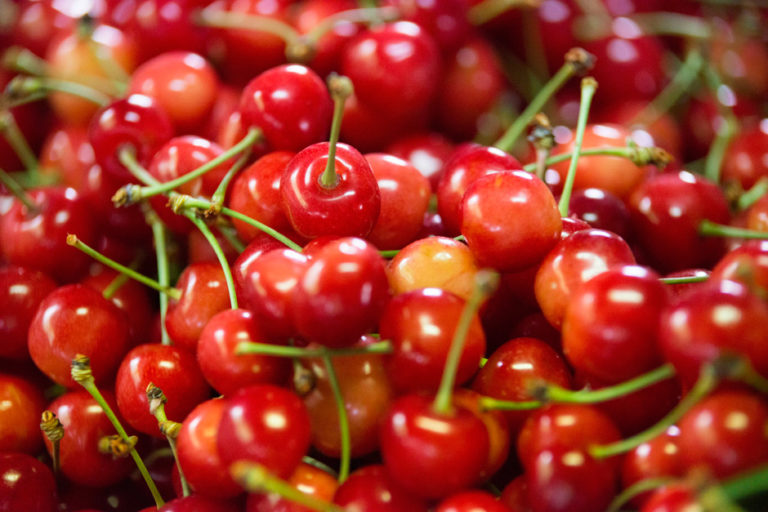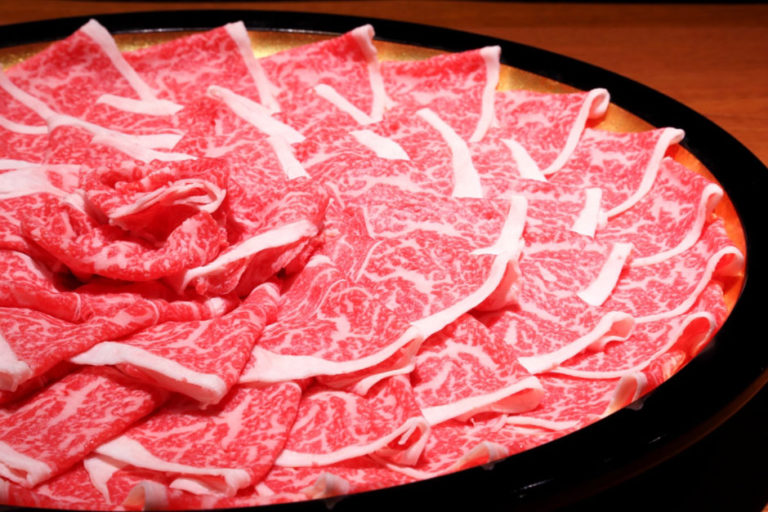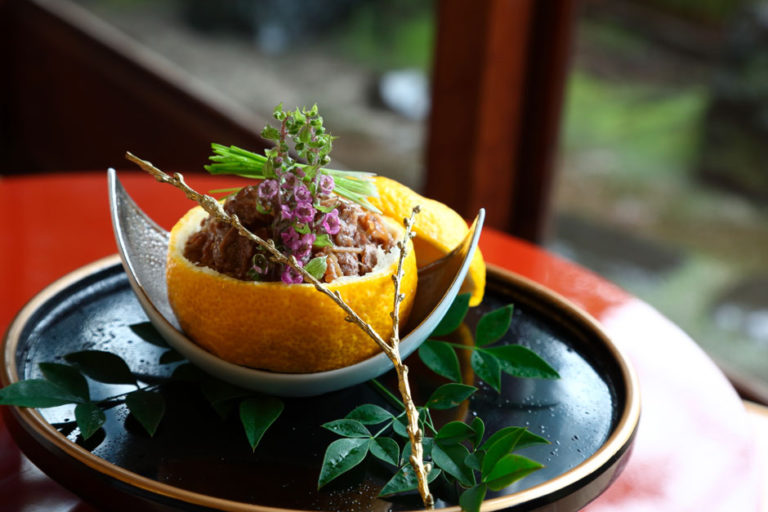SHUN CURATORS (April 2014)
So Jealous of Japan’s Seasons!
- Culinary Researcher in England Yukari Elliot

One of which is the beauty and depth of Japan's culinary culture.
England-based culinary researcher Yukari Elliot is one of those people. I asked her to talk to us a bit, as she happily cooks her days away, about the differences between the English culinary culture and the Japanese culinary culture, some of the great things she came to recognize about Japanese food culture while living abroad, and her opinions on the culinary emphasis in Japan on.
Mrs. Elliot has been busy submitting recipes and organizing events as an advisor for the “Food is GREAT” campaign, a project organized by the British Embassy that hopes to bring attention to the beauty of the British food culture.
The Sensation of the Once Forgotten “Seasons”
When you first started living in England, were you overwhelmed by how different the food was?
I married my husband and began living in England 14 years ago. At first it was really inconvenient because it was so hard to get Japanese ingredients, but it has gotten a lot easier recently.
Was there any particular event or memory that really sticks out for you?
I really like beef-asparagus rolls and so on, and make them a lot when I cater. I was trying to get my hands on that thinly sliced meat you can get anywhere in Japan. So, I went to the butcher and figured, since he’s a butcher, there’s no way he couldn’t just prepare it for me. So I pointed out the meat I wanted, and asked him to slice it paper-thin, using a bunch of hand-gestures and my sub-par English skills.
The manager said “Ok, leave it to me”. He pulls out his knife and starts cutting these really thick pieces. I kept asking him to cut thinner but he just told me to be quiet and leave it to him. He was cutting pieces 5mm wide and larger. I kept saying “Not like that! Just like paper!” I asked him to use a machine or something. Next he brings out a tenderizing hammer and just starts pounding on the meat. Bang bang bang! After he gets done brutalizing it, and it looked terrible, he handed to me with this victorious look on his face saying “See? Just like paper”. It was sad, and I could only think that that familiar thinly sliced meat just doesn’t exist in England.
The manager said “Ok, leave it to me”. He pulls out his knife and starts cutting these really thick pieces. I kept asking him to cut thinner but he just told me to be quiet and leave it to him. He was cutting pieces 5mm wide and larger. I kept saying “Not like that! Just like paper!” I asked him to use a machine or something. Next he brings out a tenderizing hammer and just starts pounding on the meat. Bang bang bang! After he gets done brutalizing it, and it looked terrible, he handed to me with this victorious look on his face saying “See? Just like paper”. It was sad, and I could only think that that familiar thinly sliced meat just doesn’t exist in England.
In England, is there anything seasonal, like what we call shun in Japanese?
In England, you can find the same food in the same place in every super market 365 days a year. It’s convenient in a way, but you don’t get that fresh seasonal flavor with any of their foods, which is unfortunate. Living abroad, I came to realize just how important shun was to Japan. One time, I was putting a recipe up on my blog for a dish that uses Okra. It’s something that you can get year-round in England, but when my Japanese followers read this recipe in the middle of winter, I got comments like “That’s kinda strange, but I’ll try it in the summer!” I thought to myself, “Oh yeah! Okra is only in season in summer for Japan. When you’re living abroad you can have a hard time keeping track of that type of thing.
The Growing Japanese Food Boom in England
I understand you are running a cooking school in England as well. I imagine you have a lot of opportunities to teach English women. Do you ever find any differences between Japanese and English people?
The way they work with their hands is completely different. They don’t seem to mind food textures either. Japanese would never over-cook vegetables, because they pay extra-special attention to the boil time. Over there they’ve started to pay a little more mind but boiled vegetables used to be extremely soft, for example their carrots. Just a bunch of vegetables with no firmness with all nutritional value destroyed. If a Japanese person were to eat it, they might say “Are these really vegetables?”. The shape and color are barely still there, but they’re soggy and have no fragrance. The way they stew them also doesn’t get rid of the scum. Even removing it just a little bit after boiling changes it, but they don’t in England so you get a weird combination of decent taste and bad odor with a strange texture. Only the Japanese can really bring out the best of the 5 senses, I think.
However, English cooking is simplistic and has good qualities too. Every home has its own style. Even if it is the same dish, each English household has that “mother’s home cooking” taste to it and each dish is delicious.
However, English cooking is simplistic and has good qualities too. Every home has its own style. Even if it is the same dish, each English household has that “mother’s home cooking” taste to it and each dish is delicious.
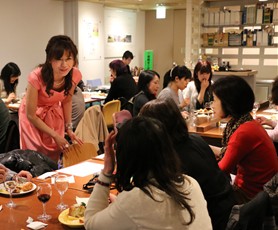
From what I hear, the numbers of Japanese who go abroad and share Japanese culinary culture are increasing, and as a result have brought a lot of global focus towards “Japanese food”.
The older generations still believe that “Japanese food” is just another word for “sushi”, and seem to be under the misconception that Japanese people just eat sushi every day. However, the younger generations have a lot more interest, and new Japanese restaurants are opening up all the time. The restaurant “WASABI” in London is selling onigiri, Japanese rice balls, and is becoming a big hit. The “WAGAMAMA” noodle shop serves ramen and gyoza, Japanese pot stickers, but the most popular dish is chicken katsu curry, a common dish in Japan that features a breaded chicken cutlet over rice with Japanese curry. It’s even written on the menu as “chicken katsu kare” as we would pronounce it, and people will come in and order with their cute English accents. During my daughter’s birthday I figured if it’s really this popular, maybe English kids might like Japanese curry. So I made the chicken katsu curry dish at home. You know usually children avoid their vegetables? They ate every bite. I was thrilled the children were that drawn to it. I’m sure if the English came over to Japan they would love every dish we give them.

I want the people of other countries to appreciate the Japanese seasons.
As April rolls around we move into spring. I bet that brings to mind a lot of Japanese seasonal ingredients.
Of course! There are a ton of Japanese vegetables that come into season during the spring. I can’t get butterbur sprout and field mustard here in England. I’m running a blog so I get to see a lot of other blogs from Japan. Everyone writes entries, introducing these delicious-looking dishes that use seasonal ingredients. Like one that worked with freshly harvested bamboo shoots boiled in rice water that made me jealous from the very bottom of my heart. I can only get it canned. I may even be forgetting what seasonal vegetables taste like! Then I go back to Japan and taste the food again and it all comes back to me. The fragrance is rich and the ingredients have been fully utilized. Going to England really forces me to appreciate the Japanese culinary culture.

You really want people overseas to understand the wonder of Japanese seasonal ingredients, right?
Yes, but there is a movement in England for getting seasonal vegetables while they’re still fresh that is gaining momentum. There are a lot more farmer’s markets than there used to be. I wrote an entry on my blog once that said the English don’t have any sense for seasonal ingredients and it makes me miss Japan. Someone with the pen name “Farmer’s wife” commented on it saying “Don’t you go to any farmer’s markets? There are a lot of producers who take great care in raising vegetables.” I assumed by the username that she must be the wife of a local farmer in England that was very hurt by what I had said. I felt really awful about it but it taught me that there are indeed many people who take pride in raising vegetables in England. These people harvest the vegetables themselves so they know exactly when they are in season, but that information isn’t being conveyed to everyone else. These farmers definitely want people to get these vegetables as soon as possible so they can enjoy them, but they sell them wholesale to the supermarkets and during the distribution process the seasonal freshness of their vegetable starts to wane. That’s one of the reasons farmer’s markets are starting to increase in number, and those farmer’s markets are spreading the joy of seasonal ingredients across the country, I think.
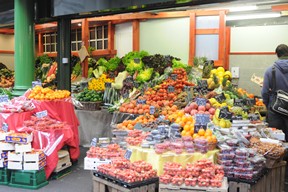
As a culinary researcher, what kind of plans do you have for the future?
Well, I’m working in food in England, so I figure I might as well try to build a bridge between Japanese and English culinary worlds. England’s cooking isn’t like it used to be. It’s getting better and there is a healthier variety. I want Japanese people to understand the beauty of English food. At the same time, I want the people of England to enjoy the essence of Japanese culinary culture that revolves around enjoying seasonal foods while they’re still fresh.
Writer : TAICHI UEDA
/
Photographer : SATOSHI TACHIBANA


